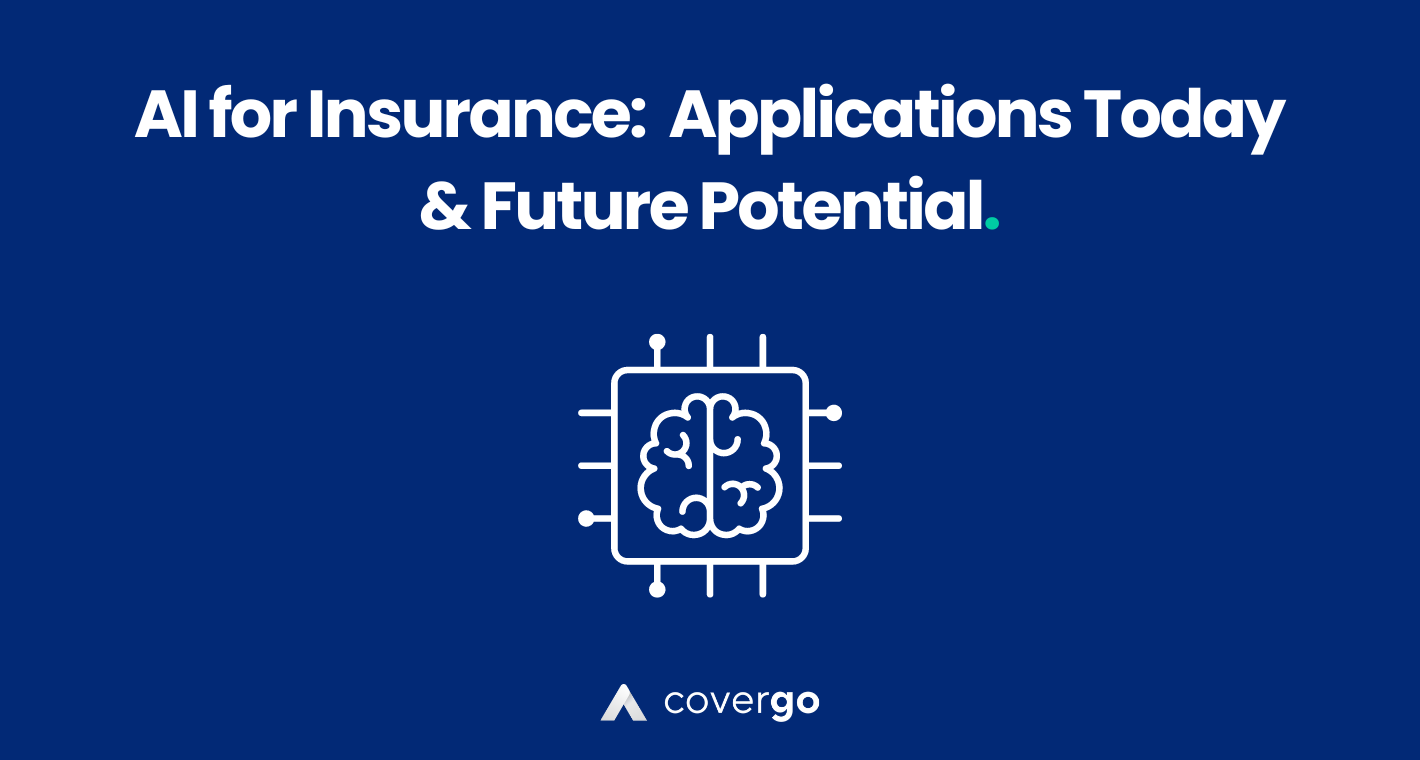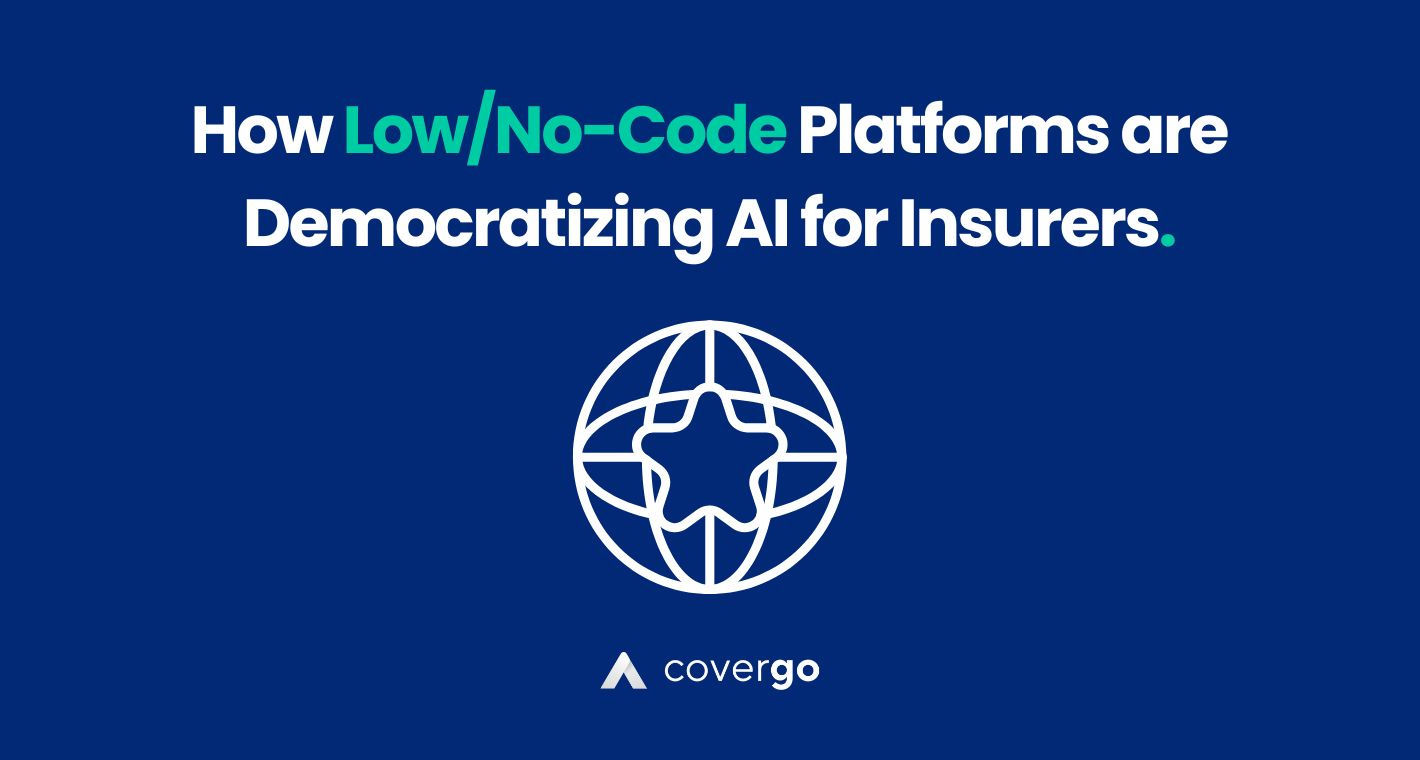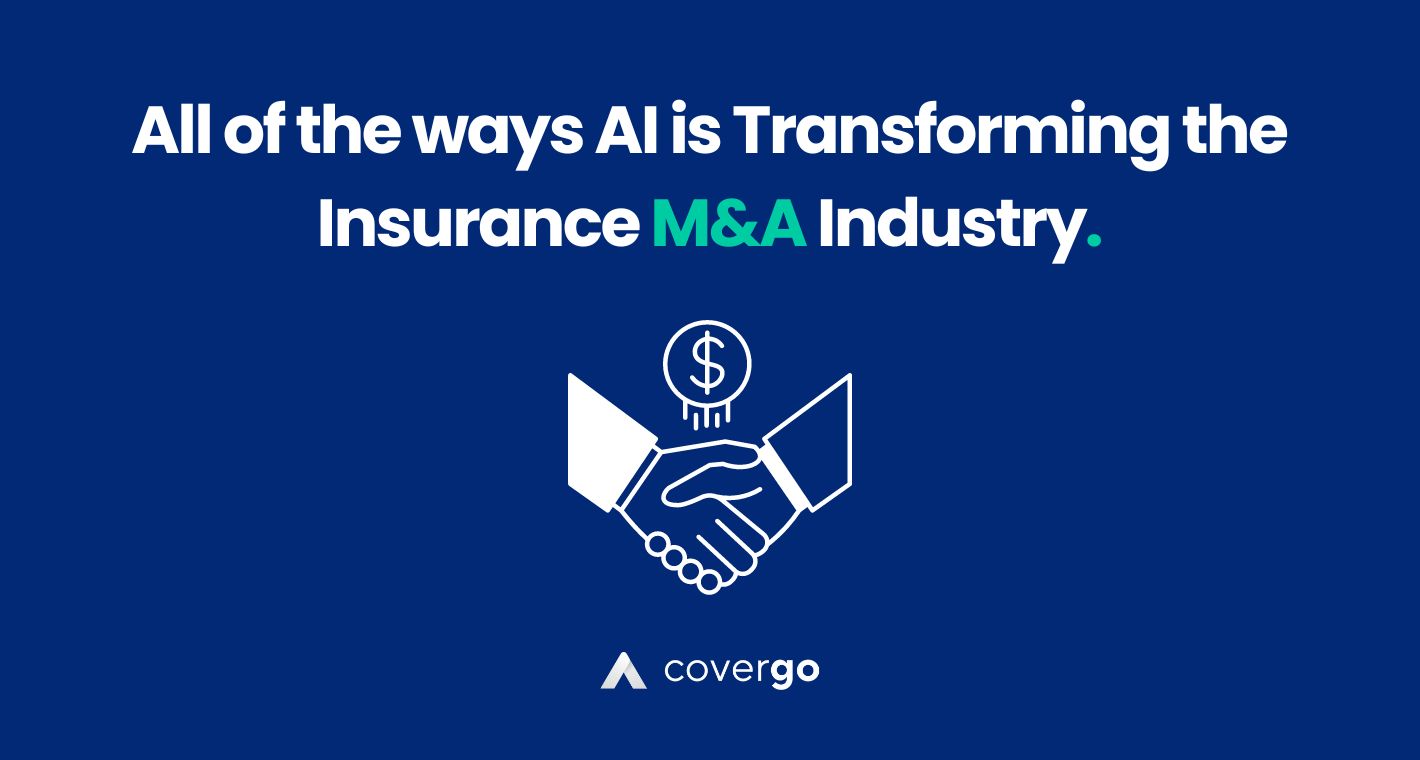Key takeaways:
-
Artificial intelligence (AI) and machine learning are transforming many industries of today, including insurance.
- Managing risk, claims, and reporting with AI brings tangible benefits to an insurance company.
- Benefits such as increased operational efficiency and improved customer service are easily achievable with AI.
- Product building has always been challenging thanks to AI.
- Machine learning and AI propel the insurance industry into the future.
Artificial intelligence and machine learning technologies have made tremendous strides in recent years, transforming and assisting many industries around the globe from finance to IT.
Unsurprisingly, the insurance sector has taken note and is leveraging new AI technologies for great benefit. From personalized policies to automated claims processing, insurers use data-driven solutions to improve customer experiences, drive efficiencies, reduce costs, and manage risk more effectively.
Reimagining Risk Assessment with AI
One of the core functions impacted by AI is underwriting. Traditionally, underwriters would manually go through each application to determine the risk profile and suitable premium. With machine learning and AI, insurers can now leverage past data to build predictive models that can automate and speed up the underwriting process.
AI underwriting models can analyze huge amounts of data for each applicant to assess risk more accurately. This allows faster turnaround times, more consistent decisions, and the ability to properly analyze difficult-to-insure customers. This improves efficiency and makes the scalability of operations much easier.
Streamlining Claims with Smart AI Technologies
AI is also significantly improving the claims management process. Machine learning is fully capable of assessing damage from photos and beginning claims processing right away.
Natural language processing is used to understand insurance policies, analyze legal language in claims documents, and extract key information faster and more accurately. In addition, AI models such as chatbots and virtual claims adjusters can handle simple claims to reduce the workload on human staff.
Complex claims involving important information can be settled more quickly using predictive modeling. By analyzing past successful and fraudulent claims, AI can identify outliers and flag potentially suspicious activity for further investigation by staff. This is helping curb insurance fraud and lower claims losses.
Creating Customers for Life With Personalized AI Service
Through continuous learning, AI engines gain a deeper understanding of customer needs, behaviors, and preferences. This data is being used to personalize and improve customer service, on top of developing relevant communications. Chatbots, virtual assistants, and recommendation engines powered by AI are always available to answer any possible question a customer might have.
Customers benefit from quick and direct service while insurers reduce costs. Advanced analytics is helping insurers better segment customers, predict lifetime value, and implement retention programs. All these efforts are aimed at enhancing customer loyalty and reducing churn.
Seeing The Future Through Advanced Analytics
By leveraging non-traditional data sources through partnerships, insurers are exploring new usage-based and on-demand insurance models. Different integrated devices and apps are collecting vast amounts of real-time behaviors, health vitals, home usage patterns, and more to tailor premiums based on risks unique to each customer.
Auto insurance, health policies, and property coverage are a few examples of emerging business models highly improved by AI. In the future, insurtech startups and large insurers are likely to offer hyper-personalized policies catering to every lifestyle and risk level using advanced data analytics.
Increasing Back-End Productivity with AI
While front-end customer and risk-facing functions grab more attention, significant AI-driven upgrades are also happening behind the scenes. Robotic process automation (RPA) powered by AI is automating repetitive back-end tasks like data entry, policy administration, billing, and so on.
AI is upgrading existing infrastructure by using its capabilities in core insurance platforms allowing for new levels of quick and easy processing. Machine translation tools are lowering language barriers for insurers who function at a global level.
Reporting Made Easy with AI
Another area benefiting from AI is reporting and analytics. Dashboards powered by AI are greatly enhancing reporting capabilities, offering smooth formatting and insights on demand.
Predictive analytics powered by machine learning is helping insurers detect emerging risks, anticipate losses, measure exposure, and optimize capital allocation in real-time.
AI reporting provides decision-makers with easy access to important information when needed without being constrained by static reports and their generation schedules. This is strengthening planning, risk management, and investment operations.
Powering Proposals with Machine Learning
Creating, distributing, and analyzing proposals is one of the biggest hold-ups of an insurance company. Luckily, AI is fully capable of automating all of the mentioned processes with efficiency.
1. Creating Proposals
AI language generation helps ensure consistency throughout the entire proposal. Proposal documents can be automatically configured, combining various coverage elements, pricing, and terms.
2. Proposal Distribution
Proposal distribution greatly benefits from machine learning engines. Getting accurate target information can boost efficiency and success rates. In addition, sales representatives have faster access to all relevant customer and product information directly within the proposal materials.
3. Analyzing Proposals
Machine learning and AI can ease the process of analyzing large amounts of past proposals and pinpoint the areas for improvement. This process can help insurers to understand what proposal strategies have succeded in the past for each of their potential targets.
AI Safeguards Customer Information
Cybersecurity has become increasingly important with the growth of valuable customer and risk information. Where traditional methods rely on a predefined set of rules, AI cyber defenses and machine learning can adapt to identify new threats as they appear extremely quickly.
Techniques such as anomaly detection, predictive modeling, and simulated attacks are improving resilience against cyber risks.
Meanwhile, AI assists with privacy and regulatory compliance by automating access management, securing sensitive data, and encouraging audits. Machine intelligence not only drives new capabilities but also increases protections against evolving cyber dangers.
Simplifying Policy Administration with AI
One of the main areas of any insurance business is policy administration which can greatly utilize help from AI and machine learning models. The main areas of improvement are policy servicing, renewals, billing, and endorsement handling.
1. Policy Servicing
AI-powered chatbots and workflows speed up common servicing tasks, helping managers receive accurate recommendations on policyholder needs. Over time, insights from customer interactions further improve AI recommendations for smoother service experiences.
2. Renewals
AI analyzes policyholder data and market trends to create targeted renewal quotes tailored to each customer, who then receives personalized offers to retain their coverage in a cost-effective way. Continuous learning enables the AI to identify smaller segments to create more personalized retention strategies.
3. Billing
Smart billing systems can use machine learning to optimize payment schedules and automate invoices and receipts. This in turn improves customer service while reducing administrative costs. Payment AI can also identify optimal payment schedules specific to each customer.
4. Endorsement Handling
AI streamlines endorsement requests and underwriting approvals based on risk profiles and set guidelines. And over time, AI endorsements will improve to require a lot less human oversight and interaction.
AI Fitness Tracking Devices Help Insurers
In recent years we saw an increase in demand for personal devices such as Apple Watch and Fitbit, which are capable of collecting important information on the person’s health such as activity, heart rate, breathing, and so on. Having this information at hand can prove to be very beneficial for insurance companies as they can then perform a full analysis of their client’s activity and health.
However, this process can be greatly simplified and sped up by combining it with AI and machine learning models. These technologies can quickly and efficiently analyze all received data from a customer’s health devices, organize it in a very understandable format for a human, as well as provide possible suggestions on the client’s risk level, activity, and health.
AI is The Future of The Insurance Industry
AI will fuel insurance innovation for decades to come. The industry is raising benchmarks for transparency, convenience, and customized risk solutions better suited for our changing world.
Insurers who can adopt AI faster gain powerful competitive advantages through hyper-personalization, efficiency, and data-driven decision-making. Book a demo with CoverGo today to be on top of your competition!
FAQs
AI improves the most important processes of any insurance business, such as risk assessment, claims management, fraud detection, and customer experience.
Machine learning is fully capable of automating all stages of proposal management. From creation to distribution, this technology can do it faster, smarter, and more efficiently.
AI will fuel insurance innovation for decades to come. The industry is raising benchmarks for transparency, convenience, and customized risk solutions better suited for our changing world. Insurers who can adopt AI faster gain powerful competitive advantages.
Recent posts
- How Low/No-Code Platforms are Democratizing AI for Insurers
- All of the ways AI is Transforming the Insurance M&A Industry.
- 10 Crucial Mistakes to Avoid When Filing an Insurance Claim
- 5 Important Tips That Will Make Filing Claims For Specialized Policies a Breeze
- Artificial Intelligence as The New Defender Against Insurance Fraud



